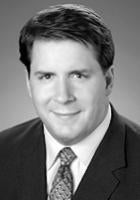On March 4, 2014, the United States Supreme Court, in a 6-3 decision, expanded the protections offered to whistleblowers under anti-fraud laws, in Lawson v. FMR LLC. In its decision, the Court ruled that a specific protection against retaliation enacted as part of the Sarbanes-Oxley Act after Enron’s collapse, i.e., 18 U.S.C. § 1514A, not only provides whistleblower protection to employees of public companies, but also protects a public company’s private contractors and subcontractors.
The Sarbanes-Oxley Act “aims to ‘prevent and punish corporate and criminal fraud, protect the victims of such fraud, preserve evidence of such fraud, and hold wrongdoers accountable for their actions.’” The Act’s whistleblower provisions protect those who reveal frauds from retaliation; whistleblowers can also potentially receive a portion of any recovered funds from exposing the fraud.
Finding that not extending protections to private contractors of public companies would create a “huge hole” in such protections, the Court concluded that Congress intended to include within whistleblower protection “countless professionals equipped to bring fraud on investors to a halt.”
In Lawson, two employees of private companies that advised certain Fidelity mutual funds revealed that the funds were overstating expenses. The funds served by the private companies are public companies with no employees. The whistleblowers raised concerns about certain cost accounting methodologies used by the Funds and certain inaccuracies in a draft SEC registration statement. Both suffered adverse employment actions and were ultimately fired.
Both whistleblowers filed administrative complaints alleging retaliation prohibited by 18 U.S.C. § 1514A. Both ultimately sued their employer under the Sarbanes-Oxley Act, but lost when an appeals court ruled that the law’s protections only covered public company employees, not outside advisers and accountants. The whistleblowers thus argued to the Supreme Court that such a limited view would support “the very code of silence” that Sarbanes-Oxley was enacted to prevent. The Supreme Court, through Justice Ginsburg (joined by Chief Justice Roberts and Justices Breyer, Kagan, Scalia, and Thomas), agreed.
Essentially, the Supreme Court ruled in Lawson that outside accountants, lawyers, and other professionals cannot be punished for exposing fraud. The Court recognized that the decision avoided insulating the entire mutual fund industry from 28 U.S.C. § 1514A’s protections. Mutual funds commonly have no employees, instead relying heavily on outside contractors. “[A]ffording whistleblower protection to mutual fund investment advisers is crucial to Sarbanes-Oxley’s endeavor to ‘protect investors by improving the accuracy and reliability of corporate disclosures made pursuant to the securities laws.’”
Justice Sotomayor (joined by Justices Alito and Kennedy) filed a dissent, looking to the specific language of the statute and finding that the law only extended to public company employees, not outside advisers.



 />i
/>i

